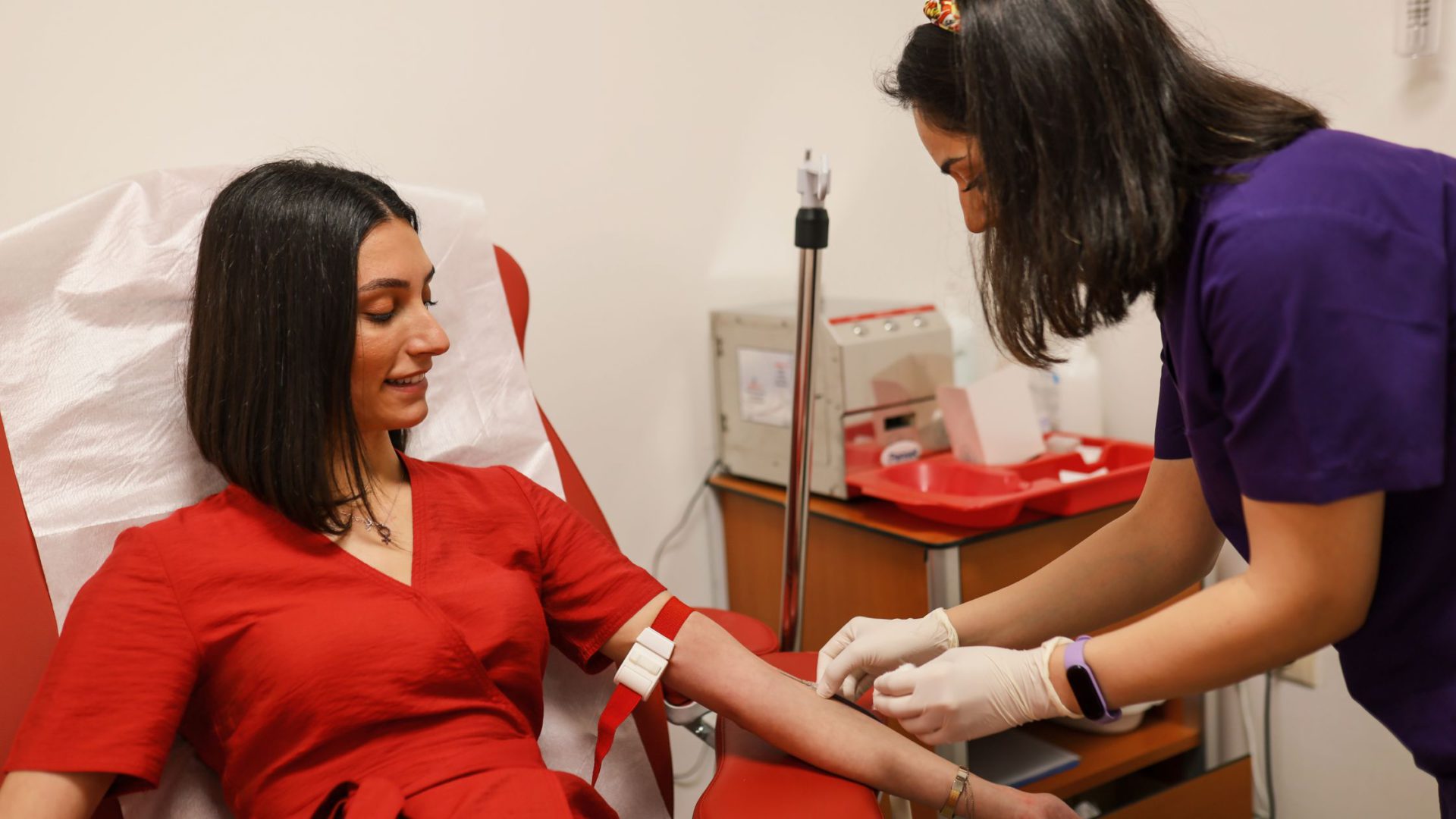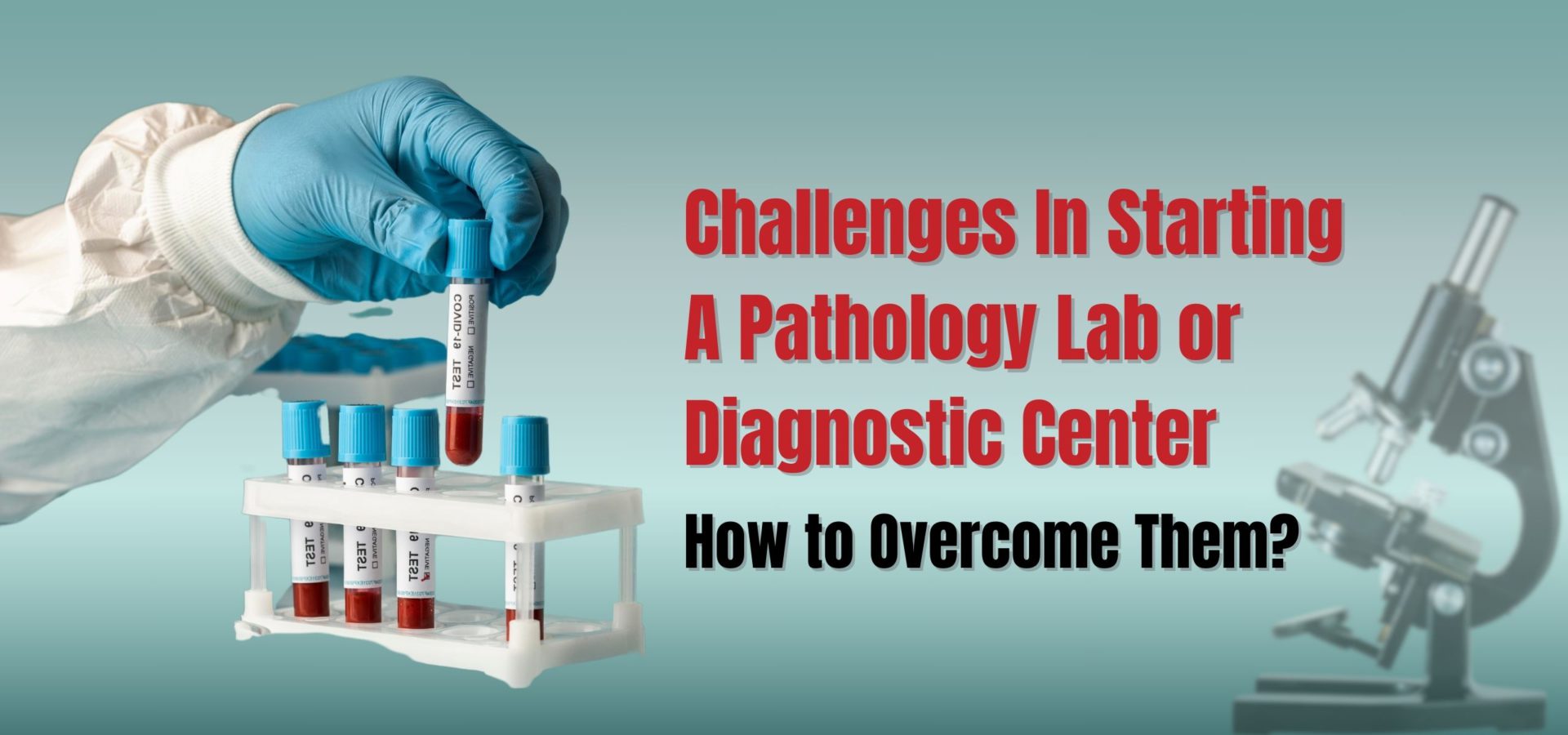The healthcare industry in India has seen significant growth over the last decade, particularly in diagnostic services. With an increasing awareness of preventive healthcare and rising demand for quality medical testing, the diagnostic sector presents lucrative business opportunities. However, starting a pathology lab or diagnostic center is a challenging feat. It comes with its own set of challenges, from acquiring the right licenses to managing operational costs. This blog outlines the key challenges in starting a pathology lab in India and offers strategies to overcome them.
5 Points to Consider Before Starting a Pathology Lab or Diagnostic Center
Licensing and Accreditation

One of the first and most critical steps when considering starting a diagnostic center is obtaining the necessary licenses and accreditation. In India, pathology labs and diagnostic centers must comply with a range of legal regulations to ensure the safety and reliability of their services.
Challenges:
- Regulatory Complexity: The process of acquiring licenses can be complex and time-consuming. Pathology labs must obtain licenses from bodies like the Clinical Establishments Act, 2010, the Atomic Energy Regulatory Board (AERB) for imaging services, and other local health authorities. Each of these may have its own set of paperwork and criteria.
- NABL Accreditation: Accreditation from the National Accreditation Board for Testing and Calibration Laboratories (NABL) is a mark of quality for diagnostic centers. However, the process of achieving and maintaining NABL accreditation involves stringent quality checks and regular audits, which can be overwhelming for new entrants.
How to Overcome:
- Consult Professionals: Hiring a consultant who specializes in healthcare regulations can help navigate the licensing process. They can streamline your paperwork and ensure you meet all necessary legal requirements efficiently.
- Double Certification: Opting for dual accreditation, such as NABL and NABH (National Accreditation Board for Hospitals and Healthcare Providers), can enhance your lab’s credibility.
Cost of Setting Up a Diagnostic Center

Setting up a pathology lab or diagnostic center requires significant financial investment. The initial cost of setting up a diagnostic center can vary based on the services you wish to offer, the location, and the quality of equipment you plan to install.
Challenges:
- High Capital Expenditure: The cost of equipment for various diagnostic services like blood testing, radiology (X-ray, MRI, CT scan), and other specialized services can be substantial. For example, a basic hematology analyzer could cost anywhere between INR 5 to 10 lakhs, while an MRI machine could go up to INR 2 crores or more.
- Operational Costs: In addition to equipment, you need to factor in other ongoing expenses such as staff salaries, utilities, maintenance, and consumables like reagents and test kits.
- Real Estate Costs: Securing a prime location that is accessible and visible to potential customers can further increase the startup costs, especially in metropolitan areas.
How to Overcome:
- Leasing Equipment: Instead of buying all the diagnostic machines upfront, consider leasing equipment. This will lower your initial capital expenditure and allow you to upgrade to better technology as the business grows.
- Smart Budgeting: Start small by offering essential diagnostic services and expand gradually as you gain more clients. This phased approach will help manage cash flow effectively.
- Government Subsidies and Loans: Look into government schemes like the “Make in India” initiative, which sometimes offers financial support for healthcare startups. Additionally, banks offer specialized loans for setting up medical businesses.
Hiring and Training Skilled Staff

The diagnostic sector requires highly skilled professionals such as pathologists, lab technicians, radiologists, and administrative staff. Ensuring the right mix of qualified and experienced staff is crucial to maintaining the quality of service in a diagnostic center.
Challenges:
- Shortage of Skilled Labor: India faces a shortage of well-trained pathologists and radiologists, especially in smaller towns and rural areas. Moreover, retaining qualified staff can be difficult due to high competition in the healthcare sector.
- Continuous Training: Medical technologies are constantly evolving, and your staff must stay up-to-date with the latest advancements in diagnostic equipment and testing methodologies.
How to Overcome:
- Partnerships with Medical Institutes: Collaborating with medical colleges or training institutes can help you recruit fresh talent and offer internships, which can later convert into full-time employment.
- Employee Retention Programs: Offering competitive salaries, incentives, and growth opportunities will help you attract and retain top talent. Additionally, regular training programs should be implemented to ensure that your staff is well-versed in the latest diagnostic technologies.
Technological Integration and Automation

In today’s fast-paced world, patients and healthcare providers expect diagnostic results to be delivered quickly and accurately. Incorporating the latest technologies for automation and digital record-keeping is essential for efficient operations.
Challenges:
- High Initial Investment: The cost of automating processes such as sample collection, data analysis, and reporting can be high. Moreover, many pathology labs still rely on manual methods, leading to delays and the risk of human error.
- Interfacing with Healthcare Providers: Establishing seamless integration with hospitals and doctors to exchange data securely can be technically complex.
How to Overcome:
- Opt for Scalable Technology: Start with affordable yet scalable lab management software that can be upgraded as your business grows. Software like LIS (Laboratory Information Systems) can help automate processes and reduce the time taken for data entry and report generation.
- Telemedicine Integration: Consider incorporating telemedicine options for patients who want remote consultations based on their diagnostic results. This can be especially beneficial in rural areas where access to healthcare is limited.
Building Trust and Brand Reputation

Trust is paramount in healthcare, and building a reputation for accurate, reliable diagnostics can take time. New diagnostic centers may find it challenging to establish themselves in a competitive market dominated by well-known brands.
Challenges:
- Gaining Client Trust: Patients and doctors often prefer established labs with a proven track record for accuracy. Breaking into this market can be tough for a new lab.
- Branding and Marketing: Many diagnostic centers in India underestimate the power of branding and customer experience, which can play a pivotal role in growth.
How to Overcome:
- Accurate and Timely Reports: Focus on accuracy and delivering reports on time, as this is the cornerstone of a successful diagnostic center. Partnering with respected medical professionals can also add credibility to your business.
- Invest in Digital Marketing: Build a strong online presence through a user-friendly website, patient testimonials, and local SEO strategies. Offer online appointment booking and report downloads to enhance customer convenience.
- Community Engagement: Conduct health camps and partner with local clinics or wellness centers to boost your visibility and reputation in the community.
Conclusion
Starting a diagnostic center or pathology lab is undoubtedly a challenging endeavor, but with the right approach, it can also be deeply fulfilling and impactful. By proactively tackling key issues such as licensing, financial planning, staff training, and technology integration, you can build a robust and community-centered diagnostic facility.
With extensive expertise in healthcare management and a commitment to excellence, Dr. Arvinder Singh provides personalized guidance that can help streamline your operations, ensure regulatory compliance, and optimize your investment. Begin your journey towards a successful diagnostic center by leveraging professional insights and proven strategies that will position your lab to thrive and serve the community effectively.


